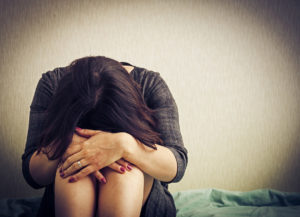 Although domestic violence is traditionally thought of as physical abuse from a romantic partner, it can also include sexual, mental, or emotional abuse.
Although domestic violence is traditionally thought of as physical abuse from a romantic partner, it can also include sexual, mental, or emotional abuse.
For almost 35 years, Elizabeth Domestic Violence Lawyer Anthony Carbone has aggressively represented victims of domestic abuse in the courtroom.
He understands how sensitive these cases can be and know how complex they can get. That’s why he treats every case with the sensitivity it deserves. He will be your voice and make sure your abuser will never hurt you again.
Domestic Violence in Elizabeth
 As defined by New Jersey law, domestic violence occurs between two people who have an established relationship. The victim needs to be 18 years old or an emancipated minor (i.e. is married, in the military, has a child, or was declared by the court as emancipated). The abuser must have the following in common with the victim:
As defined by New Jersey law, domestic violence occurs between two people who have an established relationship. The victim needs to be 18 years old or an emancipated minor (i.e. is married, in the military, has a child, or was declared by the court as emancipated). The abuser must have the following in common with the victim:
- An abuser is a person whom the victim has a child with
- An abuser is a person whom the victim anticipates having a child with or one of the parties is pregnant
- An abuser is a person whom the victim is or was in an intimate relationship with (i.e. married, dating, divorced, etc.)
Domestic abuse is all about one person trying to gain and maintain control over another partner. It is not necessarily just a physical act — it can be sexual, emotional, economic, or psychological. The behavior can range from manipulation, terrorizing, threatening, and even injuring someone all to gain power over another person.
Domestic Violence and the Court System
 In New Jersey, domestic violence can be a criminal offense as well as a civil claim. Under New Jersey law, a domestic violence offense will be handled in two separate courts:
In New Jersey, domestic violence can be a criminal offense as well as a civil claim. Under New Jersey law, a domestic violence offense will be handled in two separate courts:
Municipal Court: Depending on the severity of the charge and what municipality the charge was filed, the Criminal Division of Superior Court in Elizabeth will hear the criminal case. If your abuser is found guilty, the defendant will receive a fine and possible jail time, depending on the charge.
Superior Court: The civil component will be heard in the Family Division of Superior Court. It is here where restraining orders are issued, child custody and support are arranged, and damages (medical bills, pain and suffering, etc.) are assigned.
It’s important to have an attorney who works in both court systems to help protect your rights and the rights of your family.
Proving Domestic Violence
 Even with physical evidence, it can be difficult to prove domestic violence. But there are ways you can prove your claim, including:
Even with physical evidence, it can be difficult to prove domestic violence. But there are ways you can prove your claim, including:
- Getting Witnesses: Ask neighbors, family members, friends, anyone who has seen or heard your fighting and is willing to testify on your behalf in court.
- Obtaining Court Records: Did you file a restraining order? Were domestic violence charges brought against the abuser before? This can help in proving domestic violence in the relationship.
- Collecting Police Reports: It may also be possible that a helpful neighbor called the police to report the arguing. Any time the police have shown up at your door means a report has been filed. The police can also be used as a witness and testify what the officer saw or heard.
- Recording Victim Testimony: You can testify on your own behalf to explain the years of abuse you had suffered through.
Contact Our Elizabeth Domestic Violence Lawyer Now
 Elizabeth domestic violence lawyer Anthony Carbone is in court nearly every day. As a lifelong resident of New Jersey, he knows the ins and outs of the court system and knows how to assist you with your case.
Elizabeth domestic violence lawyer Anthony Carbone is in court nearly every day. As a lifelong resident of New Jersey, he knows the ins and outs of the court system and knows how to assist you with your case.
He can come to your defense on short notice, including evenings and weekends. He will make sure you get a restraining order, have sole custody of your children, and the abuser is put behind bars.
If you are a domestic violence victim in Elizabeth, Union County, or anywhere else in New Jersey, now is the time to act. Contact the Law Offices of Anthony Carbone immediately for a free initial consultation with our domestic violence attorney. Remember, you are not alone in this.


